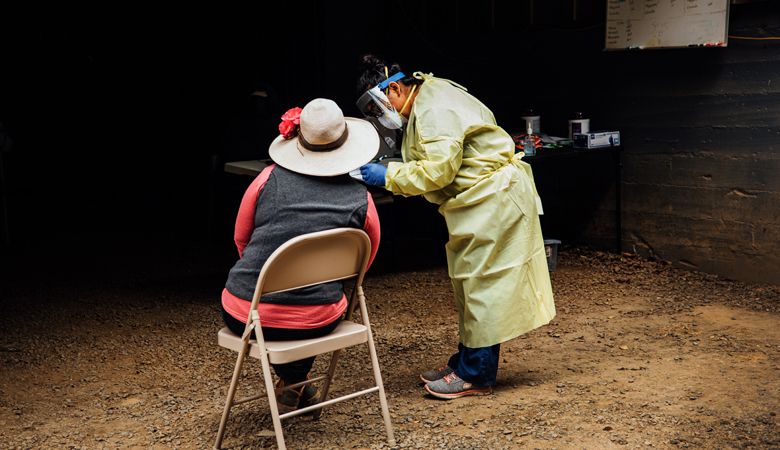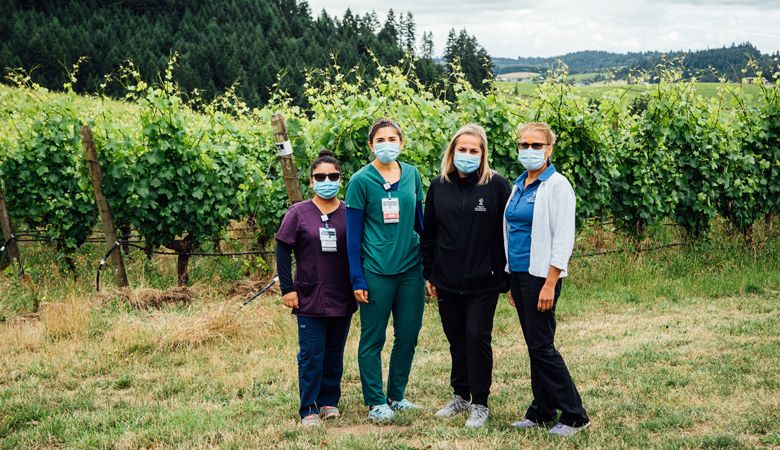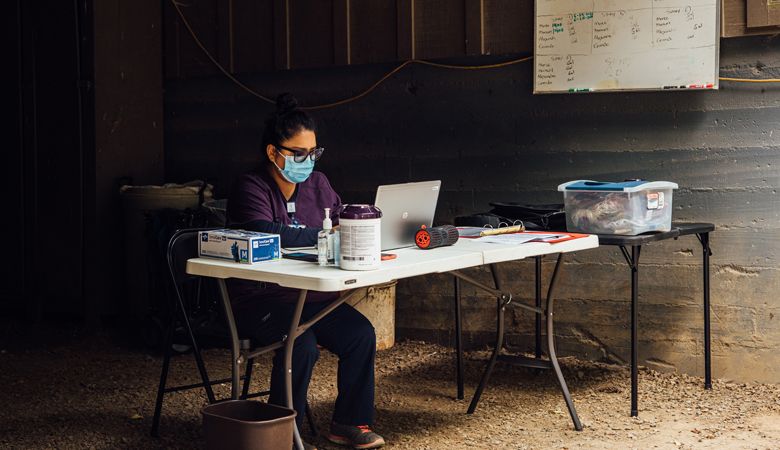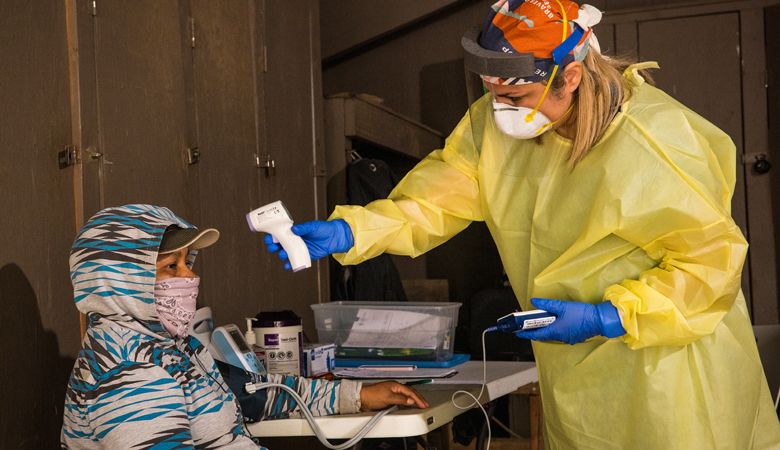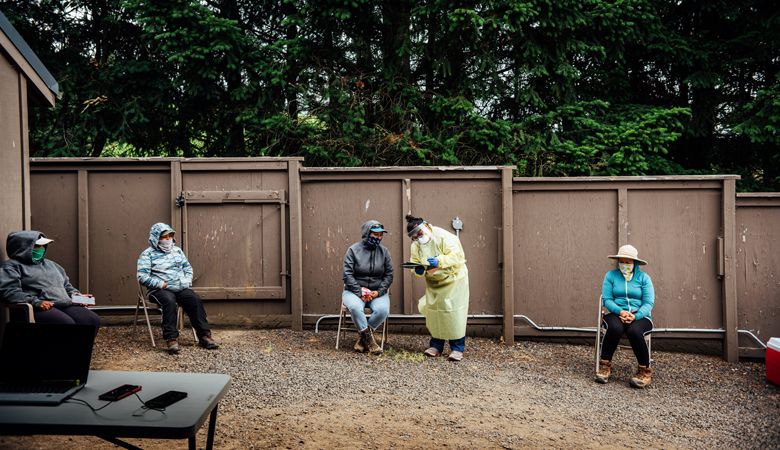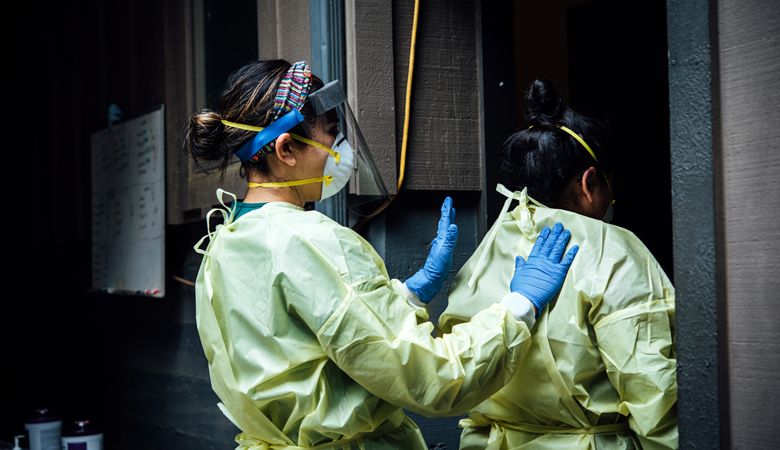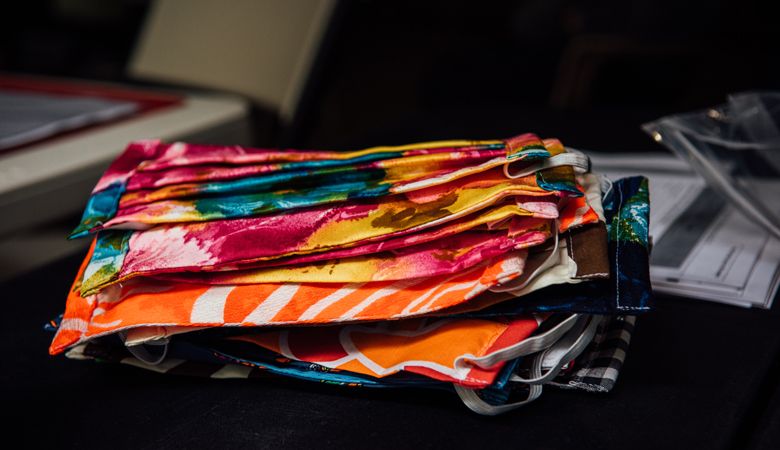Taking Care
¡Salud! brings coronavirus testing to vulnerable vineyard workers
The pandemic is omnivorous and hungry. It has no dietary restrictions and continues to reshape the planet.
Hence, everything has changed and phrases like “new normal” are affixed to all facets of present-day life. We greet each other differently these days. Our faces are masked and hand sanitizer has become as coveted as our mobile devices. And entire industries attempt massive pivots to stay afloat amid a vicious virus.
In wine, there have been all kinds of restructuring. Tasting room protocol is now built around social distancing and maximum sanitation, while winemakers fill their cars with cases and offer porch delivery to those hunkering down. Industry events have paused or moved online, and the crowds normally descending on Oregon wine country in late spring and throughout the summer have diminished some.
In the vineyard, it’s practically harvest already. It’s go-time, with final preparations being made for the upcoming crush. Workers are assessing yields, divvying up vineyard blocks or pulling leaves to allow more sunshine in to ripen the crop. Very soon, Oregon will experience its first harvest during a pandemic.
Most of us know about ¡Salud!. Launched by the area wine industry, ¡Salud! offers health access to vineyard workers. This community makes up the backbone of Oregon wine, often overshadowed by the bottled end-result. But, as any honest vintner will tell you: Wine is made in the vineyard.
Over the years, ¡Salud! has offered countless health screenings to workers, spanning some 234 vineyards, wineries and related outlets. The organization sets hard-working laborers up with essential healthcare, something that would be difficult or impossible to get otherwise due to language barriers, cost or bureaucracy.
The organization boasts an impressive outreach staff of bilingual and bicultural people, including nurses and health educators OHSU Health Hillsboro Medical Center (formerly Tuality Healthcare). They help wine industry workers navigate the healthcare system, dodge expensive and, perhaps, unnecessary treatment and identify high-risk folks whom the traditional system tends to overlook.
As we all know, things changed dramatically around mid-March this year, right around the time the latest vintage was budding to life in vineyard rows across the state. Suddenly, the world found itself in quarantine and began to adapt to very new lifestyles. Six feet became an oath to function by and N95 became something forever burned into our collective psyche. COVID-19 had arrived with a bang and had zero plans of leaving, especially in the U.S.
Like pretty much every organization, industry, group and individual out there, ¡Salud! had to pivot. Essentially sidelined from the vineyard due to new health protocols and scarcity of testing resources, it went the route of proactive outreach instead. The organization went to work informing vineyard workers and their employees, and setting them up with healthy practices to avoid the virus.
“Our focus in March and April was getting educational resources,” said ¡Salud! philanthropy coordinator Stephanie Buchanan. “Texting CDC recommendations in Spanish, offering mask-making guides, case management and more.”
Since the first week of May, ¡Salud! has screened more than 400 patients for the novel virus either at worksites or drive-thru clinics offered at no cost to workers. It’s a philanthropy-backed enterprise with oversight from OHSU Health Hillsboro Medical Center. The clinical appointments are efficient and vital, offering everything from test results within 48 hours to routine lab testing and referrals.
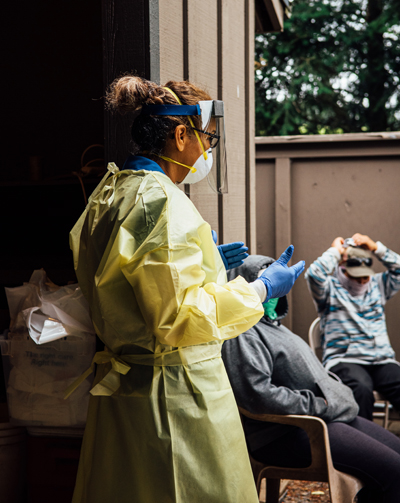
It is paramount to note that COVID-19 has disproportionately ravaged marginalized communities all over the nation. The story is no different in Oregon. In wine country, the virus has taken a larger percentage toll on the Hispanic and LatinX populations who contribute greatly to the area wine scene. In Washington County, the LatinX population makes up just 16% of the whole. Yet, half of all cases in the county are owed to this relatively small demographic.
¡Salud! has worked efficiently to stymy the virus. Buchanan says the clinics can handle 30 patients through appointment testing and effective social distancing with two to four clinics held per week. She says it’s a “station-to-station approach,” meaning no crowds or lingering. It’s a lot like what we’re accustomed to now when we visit the local farmer’s market or grocery store, with one-way traffic and no potentially unhealthy bottlenecks.
As virus numbers continue to skyrocket, ¡Salud! is doubling down on its mission: “Our focus now is trying to double screening capacity at central locations,” Buchanan said. This could prove invaluable as laborers ready rows for harvest and, as Buchanan mentions, folks like harvest interns are introduced to wine country to work crush. More people and activity spells more potential contamination.
Unsurprisingly, there’s been a lot of support. “We’ve seen everything from out-of-rhythm donations to homemade masks,” Buchanan noted. Normally, ¡Salud! reaps its funding from a host of events throughout the year. While that’s still very much the case, as July’s e-auction suggests, people are opening their wallets not just according to grand tastings and memorable galas, but a new sense of ongoing urgency brought on by the pandemic.
Last year, ¡Salud! broke the $1 million mark via its Oregon Pinot Noir Auction. This year’s e-auction ran from July 14–16 and involved special lots of wine from 35 Oregon wineries. Participating labels include Big Table Farm, ROCO Winery, Hamacher Wines, Ken Wright Cellars and many more. While in the past, the physical auction brought out-of-town folks, the virtual version, which ¡Salud! has been running for a few years now, seems even more accessible. Wine enthusiasts from all over can check in from the comfort and safety of home.
“We really do reach a national market,” Buchanan said. “This year, we’ve seen a great response and the bidding has been really enthusiastic.” The marquee November gathering will look a bit different this year, that’s for certain, but the mission remains the same. Instead of a boisterous physical gathering, ¡Salud! is planning a virtual event — something Buchanan says will be a cross between innovative, new programming and an old school PBS-style telethon.
Meanwhile, workers are getting things set up for the 2020 vintage. And they’re trying to do so as safely as possible, with ¡Salud! providing both health services and awareness, while wineries and vineyards increase hand-washing stations, among other precautions.
Harvest 2020 will undoubtedly be a very different animal. Images from harvest in the southern hemisphere, which unfolded as the pandemic was doing the same, suggest as much. But that doesn’t mean it has to be a burden and potential health risk to those involved. More to the point, it should especially not jeopardize a community that’s already bared the brunt of this extremely deadly and unrelenting disease.
As summer sneaks into fall and the urge to get out really adds up, remember what’s at stake. Look to support your local wine industry not simply by showing up or buying bottles but donating money or volunteering hours to organizations like ¡Salud! and recognizing that some portions of the population are even more vulnerable than others.
For about 30 years, ¡Salud! has recognized and honored a crucial family of labor within the larger wine industry. Its work right now maybe its most important to date, for obvious reasons. Here’s to the organization continuing its noble work and the hope that other wine regions across the country can follow suit.


